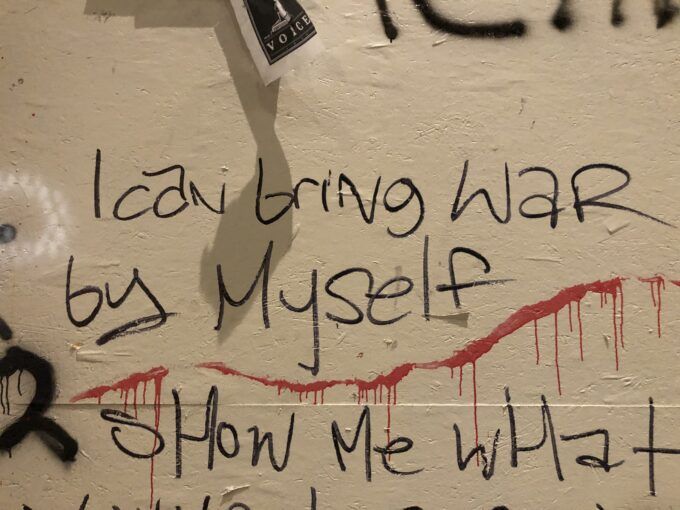Kurdish institutions, academics, trade unionists and writers in Britain wrote a letter to the new British Foreign Secretary, David Lammy, calling on him to act about the invasion attacks of the Turkish state.

ANF
LONDON
Saturday, 20 July 2024, 09:55
The Labor Party came to power by a wide margin in the elections held on 4 July. David Lammy, the Member of Parliament for the Tottenham Region, a borough in London where many Kurds live, was named as the new British Foreign Minister.
Lammy is a politician that Kurdish voters have met with many times, especially to talk to him about the war crimes committed by the Turkish state against the Kurdish people. Lammy had attended many meetings at the Kurdish Community Center.
In a statement, Lammy said that the concerns of the Kurds were justified and that the conservative British government was also responsible for the Turkish state's policies towards the Kurds.
The Foreign Affairs Committee of the British Kurdish People's Assembly, Kurdish institutions and Kurdish friends, including MPs, trade unionists, journalists, intellectuals and writers, sent a letter to the new Foreign Minister, calling on him to act about the Turkish state's occupation and genocidal attacks in South Kurdistan.
The letter said: "We, the concerned members of a UK-wide network of activists, trade unions, human rights activists, students, teachers, civil society organisations, and community groups, are writing to you in relation to an urgent matter regarding Turkey’s escalated military activity since 15 June in the Kurdistan Region of Iraq, risking a broader war against the Kurdish people resident in the region. For many months, Turkey’s AKP government, led by Erdogan, has overtly made comments that the summer period would see an escalated war, the basis for which has consistently been to target PKK fighters in the region. However, we are concerned that the increased mobilisation of Turkish military personnel and equipment risks a war with greater humanitarian and environmental costs. In light of this grave concern, the Kurdish movement has made calls to the international community to challenge Erdogan’s war-oriented policies and advocate for peace and stability in a region already torn by decades of conflict."
The letter added: "Since the beginning of 2024, the Turkish Armed Forces have launched 1076 offensives in Kurdistan Region of Iraq (KRI), of which: 526 offensives have occurred in Duhok, 405 offensives have occurred in Erbil, 135 offensives have occurred in Sulaymaniyah and 10 offensives have occurred in Ninova. In the last month alone, the Turkish Armed Forces have entered 30 km through the shared border and formed at least 45 known military bases. Over 300 military tanks have been mobilised into the territory, signalling broad preparations for a costly war in the region.
We also have knowledge that Turkey has supported the mobilisation of ISIS groups into the Kurdistan Region. We must remind your office that the Kurds led the brave fight for humanity against the reactionary so-called Islamic State in the last decade, and took upon themselves the humanitarian responsibility of safeguarding the Syrian and Iraqi territories from evil. Today, we are observing a major silence from the international community in the face of military and humanitarian threats from regional powers, including Turkey and Iraq, who remain solidly convinced that a war of this nature is necessary."
The letter continued: "We must state that a military mobilisation of this kind is an overt infringement of Iraqi sovereignty; Turkish military personnel and equipment have severely disrupted the day-to-day lives and livelihoods of common villagers and civilians in the region. Since 1991, Turkish war efforts against the PKK in the Kurdistan Region have resulted in 702 known civilian murders, 344 civilian casualties, the destruction of 162 villages, meanwhile 602 villages remain under threat of destruction. These statistics may merely reflect a proportion of the damage from this longtime conflict, and risk becoming greater in the event of a fresh escalation of war in the region.
As concerned UK citizens and advocates of peace and justice for the Kurdish and local peoples in the Kurdistan Region and the surrounding territories, we make this appeal to you, in your capacity as UK Foreign Secretary, to closely monitor the situation in the Kurdistan Region, and to raise this with your Turkish, Iraqi and foreign counterparts as a major humanitarian concern. In the case that leading democracies like the UK remain silent in the face of these overt preparations for war, we risk facing a severe humanitarian and environmental crisis in a region bruised by decades of unresolved conflict. With this letter, we also call on the international community and relevant international bodies to stand in solidarity with international calls for the resolution of the Kurdish issue in Turkey and the Middle East, through an immediate halt to conflict and a negotiations process for peace and justice to prevail."
The letter was signed by the following institutions and people:
Organisations:
Freedom Movement (Tevgera Azadî) UK Kurdistan Free Life Party UK (PJAK)
Eastern Kurdistan Women’s Union UK (KJAR) Jiyan Kurdish Women’s Assembly UK
Kongra Star Women’s Movement in Europe Syrian Democratic Council UK
Northwest Kurdish Community
Kurdish People’s Assembly in Scotland Kurdish Youth Movement UK
UK Kurdistan Solidarity Network
Scottish Solidarity with Kurdistan
UK Kurdish Inter-Society Platform (Kurdish Societies in 7 UK Universities) Solidarity Economy Association
Individuals:
Margaret Owen, Lawyer, Patron of Peace in Kurdistan UK
Dr. Nicholas S. M. Matheou, Lecturer, University of Edinburgh
Stephen Smellie, Unison National Executive Council
Katerina Vrablikova, Senior Lecturer, University of Bath
Lenka Vrablikova, Lecturer, Goldsmiths, University of London
Dr. Stefano Ba’, Senior Lecturer in Applied Social Sciences
Dr. Victoria Lowe, Senior Lecturer in Film Studies
Jacinta Kerketta, Writer, Poet, Independent Journalist, India
Felix Padel, Professor
Hilary Zhou, National Coordinator Zimbabwe People’s Land Rights Movement Philip Neale, Friends of Rojava Thanet
Beatrice Andrieu, Language Teacher
Eva Schonveld, Co-Convenor, Grassroots to Global
Anthony Kalu, Teacher
Dave Finch








